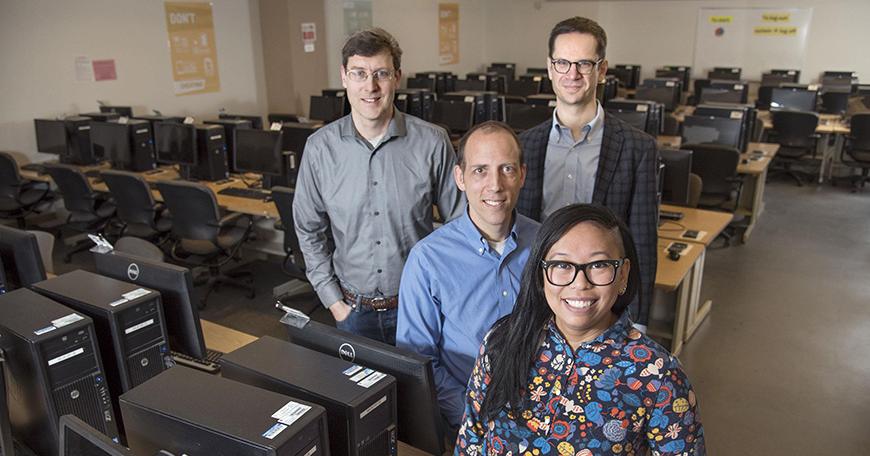Online Testing: Recommendations for security, economy, and student wellbeing

In online testing, there is tension between multiple contrasting objectives: security issues are weighed against cost - and again weighed against invasiveness to the student. University of Illinois Professor Craig Zilles helped create a computer based testing facility at Illinois which has recently migrated its operations to exclusively online in response to the pandemic. This fall the facility will follow some of Yelena Feinman’s (20181.) recommendations for online testing, but not all. In a recent J-WEL talk Zilles explains why.
The following are recommended:
- Administer synchronous exams with limited time to discourage students from surreptitiously helping each other. With limited time, students will need to focus on their own work, leaving less time for messaging, texting, cheating, etc.
- Randomize questions. Giving each student a different test makes cheating require more effort.
- Test “higher order” items, ie. topics a student cannot put into Google to get the answer.
- Proctor, but with moderate expectations. Replicating the security of face-to-face proctoring with online proctoring is expensive and invasive. Zilles and his colleagues will use Zoom-based proctoring to discourage the most egregious cheating.
- Add a cheating statement and require each student electronically sign it.
Although they go against Feinman's recommendations for maximizing exam security, Zilles says their facility will take the following steps because they deem the additional security will cost too much in terms of student well-being and learning opportunities..
- Allow back-tracking: students can answer exam questions in any order. To give a test where the student must do each question in order and cannot go back would be a marked departure from normal exams and test-taking strategies, likely causing additional unnecessary stress.
- Do not lock down the browser. In a world where many students have multiple connected devices, they deem the invasiveness of the software not worth the incremental security it achieves.
- Give tests with immediate feedback. Allowing multiple submissions for partial credit plays a significant role in their computerized exams and students like knowing how they did at the end of the exam.
Craig Zilles (BS/MS MIT `95) is an Associate Professor of Computer Science at the University of Illinois. His research has spanned from haptic interfaces to computer architecture to his current focus on technology for education and learning analytics. He is an award winning instructor, having won a 2018 campus-level Award for Excellence in Undergraduate Instruction, an Illinois Student Senate Teaching Excellence Award, the IEEE Education Society's 2010 Mac Van Valkenburg Early Career Teaching Award. He is a recipient of an NSF CAREER award and best paper awards from ASPLOS in 2010 and 2013. He holds five patents.
1. https://scholarworks.waldenu.edu/cgi/viewcontent.cgi?article=1345&context=jsbhs

